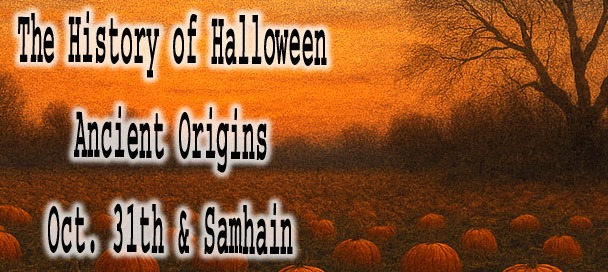Bobby Bare Music Legacy

Bobby Bare, a legend in country music
Bobby Bare is a respected country music singer and songwriter whose career has spanned more than 50 years. From his early days in the industry to his later years, he consistently brought a unique voice and perspective to the genre. Bobby Bare Music Legacy is marked by his ability to blend traditional country sounds with folk and rock influences, creating songs that resonated with audiences across generations.
Bobby Bare, born in 1935, carved out one of country music’s longest and most varied careers. Known for hits like Detroit City and 500 Miles Away from Home, he blended traditional storytelling with a plainspoken style that set him apart. His insistence on creative freedom made him a forerunner of the outlaw movement, and his later induction into the Country Music Hall of Fame confirmed his influence. Even in his later years, Bare remained a respected figure whose music continues to be rediscovered by new audiences.
He was known for his innovative style of music, never content to follow trends but instead carving out his own path. Whether it was the storytelling in his lyrics, the way he embraced humor in his songs, or the raw emotion in his ballads, Bobby Bare Music Legacy is built on his fearless approach to making music. His collaborations with legendary songwriters and producers helped shape his sound, ensuring each album or single he worked on had a distinct and fresh feel.
Throughout his career, he navigated the evolving landscape of country music, adapting without losing the essence of his artistry. From his chart-topping hits to his deep-cut album tracks, Bobby Bare Music Legacy remains a testament to his dedication, creativity, and the lasting impact he has had on the genre.
Early Life
Bobby Bare was born on April 7, 1935, in Ironton, Ohio, during a time of economic hardship. His mother passed away when he was very young, leaving him to take on responsibilities far beyond his years. Growing up in a poor family, he had no choice but to work from an early age, doing whatever he could to help make ends meet. Bobby Bare Music Legacy is deeply rooted in these formative years, where resilience and determination shaped his character long before he ever picked up a guitar.
By the time he was fifteen, he was working long hours on farms and later in factories, doing physically demanding jobs to support his family. Music was not something he studied in school—he never had that opportunity—but it was something he gravitated toward naturally. He learned to play guitar from friends, picking up chords and melodies through sheer passion and perseverance. Bobby Bare Music Legacy was not built in a classroom but in the everyday struggles of real life, where music became his escape and his future.
It didn’t take long for him to realize that music was more than just a hobby—it was what he was meant to do. He began performing with a local band in Springfield, Ohio, where his talent quickly stood out. His deep, expressive voice and ability to connect with audiences set him apart, marking the beginning of Bobby Bare Music Legacy. What started in small-town bars and dance halls would eventually grow into a career that spanned decades, leaving an unforgettable mark on country music.
First Record
Bobby Bare made his first record with “Capital Records”. This album mostly had rock & roll songs. It went unnoticed and left him thinking of finding some other way to make living. Bobby Bare joined Army and was a hardworking guy. He served army with hard work and dedication.
“The All American Boy"
This song was initial breakthrough that Bobby Bare. However, there is an interesting story behind the release of the song. He recorded the song for his friend Bill Parsons. The Fertenity Records issued this song as Bill Parsons. But it went on to be in number two in the billboard charts. So his work did get success, just not on his own name.
“Shame on Me” and “Detroit City”
Bobby Bare was familiar with country music from his childhood, growing up surrounded by the sounds of heartfelt storytelling and twangy melodies that would later define his own style. His early exposure to the genre played a crucial role in shaping Bobby Bare Music Legacy, giving him a deep understanding of the music long before he ever stepped into a recording studio.
In 1962, when he got an opportunity from MCA Records, he made the most of it, recording what would become a breakout hit, “Shame on Me.” The song’s success put him on the map, introducing audiences to his smooth, rich vocals and unique style of delivery. But Bobby Bare Music Legacy was just getting started. Riding the wave of his initial success, he quickly followed up with another smash hit, “Detroit City,” a song that not only cemented his place in country music but also became one of his most enduring classics. This second release climbed the charts and remained in the Top Ten Hits for an extended period, further proving his ability to connect with listeners.
His momentum didn’t slow down. The next string of hits—“500 Miles Away from Home,” “Four Strong Winds,” and “At the Lincoln Park Inn”—further solidified Bobby Bare Music Legacy as one of the most influential voices in country music. Each song carried a distinct emotion, whether it was the longing for home, the power of love, or the weight of difficult choices. With every release, he continued to push boundaries and redefine what country music could be, making sure his work remained fresh and compelling throughout his decades-long career.
Working with Other Artists
Bobby Bare was considered friend of friends, he loved and cared for his friends that he made in the music business. And he worked with many celebrities beside music. This list includes Skeeter Davis, and Norma Jean. After this he made some songs with Liz Anderson and Tom T. Hall. In 1968, he also wrote some songs for an English band “The Hillsiders”.
Mercury Record Years
1970 to 1973 was during the period of three years when Bobby Bare released his best work. This includes smash hit after hit. It includes, "How I Got to Memphis", "Come Sundown" "PleaseDon’t Tell Me How the Story Ends", and "Sylvia's Mother".
Explore the Biographies of Icons in Music
RCA Record Years
From 1973 to 1977, Bobby Bare continued to shape country music, this time under RCA Records, a partnership that would add even more depth to Bobby Bare Music Legacy. During these four years, he released a string of memorable songs, further establishing himself as a standout artist in the industry.
His first major hit with RCA was “Ride Me Down Easy,” a song that showcased his ability to blend storytelling with melody, earning him praise from both fans and critics. But the defining moment of this era came with the release of “Marie Laveau.” This song became a massive success, climbing all the way to number one on the country music charts—the only chart-topper of his career. Bobby Bare Music Legacy grew even stronger with this achievement, proving his ability to create music that resonated with audiences on a grand scale.
The success of “Marie Laveau” didn’t go unnoticed. In 1975, the song earned the BMI Award, a testament to its impact and popularity. It was yet another milestone in Bobby Bare Music Legacy, marking him as not just a talented singer but also a force to be reckoned with in country music. His time with RCA Records allowed him to expand his artistic reach, setting the stage for the next phase of his legendary career.
“Daddy What If,”
One of the most heartfelt moments in Bobby Bare Music Legacy came with the release of “Daddy What If.” This song was particularly special, as Bobby Bare recorded it with his five-year-old son, Bobby Bare Jr. The duet showcased a tender and emotional side of his music, resonating deeply with listeners who connected with its sincerity and warmth.
The song was not only a touching father-son collaboration but also a huge success, climbing the charts and becoming one of his most memorable recordings. Its impact was further recognized when “Daddy What If” was nominated for a Grammy Award, solidifying its place in Bobby Bare Music Legacy as one of the defining moments of his career. The song’s success proved that his ability to connect with audiences extended beyond traditional country themes, reaching into the personal and heartfelt storytelling that made his music so enduring.
Songs for Children
Bobby Bare’s song dedicated to his song got immense fame and success. It motivated him to write and compose more songs for children. These hit children songs include "Singing in The kitchen”, “Almighty”, "The Winner", "Drop Kick Me Jesus”, “Through the Goalposts of Life" and “Christian-football waltz”.
Shel Silverstein and Bobby
A defining aspect of Bobby Bare is his long-standing friendship and collaboration with legendary songwriter, poet, and humorist Shel Silverstein. Their partnership was one of the most significant in country music, resulting in some of Bare’s most creative and memorable songs.
The two first connected in the late 1960s, and their musical chemistry quickly became apparent. Silverstein, known for his imaginative storytelling and offbeat humor, brought a fresh perspective to country music, while Bare had the perfect voice and delivery to bring those stories to life. Their collaborations produced some of Bare’s biggest hits, including “Marie Laveau”—his only number-one song—along with classics like “Daddy What If,” “Tequila Sheila,” and the iconic “The Winner.”
In 1973, Bobby Bare Music Legacy took a bold turn with the album "Bobby Bare Sings Lullabys, Legends and Lies," an ambitious double album written almost entirely by Shel Silverstein. This record became a landmark moment in Bare’s career, proving that country music could be more than just heartbreak and honky-tonks—it could be funny, bizarre, and deeply poetic all at once. The album’s mix of humor, storytelling, and raw emotion showcased their combined genius, influencing future generations of country artists.
Their friendship extended beyond music. Bare often spoke about how much fun it was working with Shel, describing him as a free-spirited genius who saw the world differently. Their bond was built on mutual respect, laughter, and a shared love for pushing creative boundaries. Through their songs, they crafted a unique blend of humor and heartfelt storytelling, ensuring that Bobby Bare Music Legacy would forever be tied to the brilliance of Shel Silverstein.
Concept Songs
Bobby Bare grip on music was getting intense and stronger. So he experimented some new concept songs. This turned out to be yet another blockbuster event and was extremely successful. The songs of this style are “Lullabyes, Legends and Lies", "Redneck Hippie Romance", "Vegas”, and “Bird Named Yesterday”.
Columbia Records Years
Until 1983, Bobby Bare continued to evolve as an artist, working with Columbia Records and expanding his musical range. Always willing to push boundaries, he began experimenting with different styles, including Southern country, blending traditional sounds with new influences. This period of artistic exploration added even more depth to Bobby Bare Music Legacy, proving his versatility and willingness to take risks.
The result was a diverse collection of hit songs that showcased his ability to adapt while staying true to his storytelling roots. Some of the standout tracks from this era include “Sleep Tight Good Night Man,” a song that highlighted his smooth vocal delivery, and “Bare”, which carried a deeply personal touch. His willingness to step outside conventional country music was evident in songs like “Sleeper Wherever I Fall” and “No Memories Hanging Round.”
During his Columbia years, Bobby Bare Music Legacy grew even stronger with a mix of both traditional and unconventional hits. Songs like “Down and Dirty” and “Drunk and Crazy” embraced a raw, outlaw country vibe, while “As Is” and “New Cut Road” reflected his ability to craft songs with vivid storytelling. His later hits during this period, such as “It’s A Dirty Job” and “The Jogger,” further cemented his reputation as an artist unafraid to explore new themes and sounds.
By the time he parted ways with Columbia in 1983, Bobby Bare Music Legacy had already left an undeniable mark on the industry, proving that his music could evolve without losing its heart and authenticity.
EMI America Records Years
In 1985 Bobby Bare started working with EMI Records. The result was released in three singles. They became minor hits and are last recorded music of Bobby Bare. This includes, "When I Get Home", "Reno and Me", and "Real Good".
Hosting & Acting
In 1983 Bobby Bare started his famous TV show “Bobby Bare and Friend”. This show remained very popular for next five years. In this show Bobby interviewed songwriters, singers, and musicians. Bobby worked as actor in a few successful projects. These include, “A Distant Trumpet”. He also appeared in the popular TV drama “No Time for Sergeants”.
Still Going Strong
Bobby Bare’s career in music is still going strong. Even after more than 50 years in the industry, his passion for music remains as strong as ever. He continues to perform, connect with fans, and celebrate the songs that have defined his remarkable journey. Bobby Bare Music Legacy is not just about the past—it’s still unfolding, as he remains an enduring figure in country music.
Beyond his own success, he has played a key role in shaping the careers of many rising stars. His influence stretches far beyond his own recordings, as he has helped launch and mentor some of the biggest names in country music. Through his unique approach to storytelling and his willingness to push creative boundaries, Bobby Bare Music Legacy continues to inspire new generations of artists.
In addition to his legendary career, he is also a proud father. His son, Bobby Bare Jr., has followed in his footsteps, carrying on the family tradition by singing and touring. Just as Bobby carved his own path in music, his son has embraced his own style while honoring the foundation laid by his father. Bobby Bare Music Legacy now extends across generations, ensuring that his impact on country music will live on for years to come.
Discography for Bobby Bare
- Detroit City and Other Hits (1963)
- 500 Miles Away from Home (1963)
- The Travelin' Bare (1964)
- Tunes for Two (with Skeeter Davis) (1965)
- Constant Sorrow (1965)
- Talk Me Some Sense (1966)
- The Streets of Baltimore (1966)
- This I Believe (1966)
- The Game of Triangles (with Liz Anderson and Norma Jean) (1967)
- A Bird Named Yesterday (1967)
- The English Country Side (with The Hillsiders) (1967)
- (Margie's At) The Lincoln Park Inn (1969)
- This Is Bare Country (1970)
- Where Have All the Seasons Gone (1971)
- I Need Some Good News Bad (1971)
- What Am I Gonna Do? (1972)
- High and Dry (1972)
- I Hate Goodbyes / Ride Me Down Easy (1973)
- Bobby Bare Sings Lullabys, Legends and Lies (1973)
- Singin' in the Kitchen (with The Family) (1974)
- Hard Time Hungrys (1975)
- Cowboys and Daddys (1975)
- The Winner and Other Losers (1976)
- Me and McDill (1977)
- Bare (1978)
- Sleeper Wherever I Fall (1978)
- Down & Dirty (1980)
- Drunk & Crazy (1980)
- As Is (1981)
- Ain't Got Nothin' to Lose (1982)
- Drinkin' from the Bottle, Singin' from the Heart (1983)
- Merry Christmas from Bobby Bare (1988)
- I Love An Old Fashioned Christmas (1993)
- The Moon Was Blue (2005)
- Darker Than Light (2012)
Further Reading & Resources
📖 Read: The Great Book of Country: Amazing Trivia, Fun Facts & The History of Country
🔍 Explore: Country Legends: Dolly Parton, Porter Wagoner & Friends

ML Lamp is the owner of Kilroy Was Here. After his 20 years of working in Las Vegas in the entertainment promotions field, Mr. Lamp retired in 2002 from his job to pursue his passion for collectibles. Now as a guest speaker and author he’s living the dream, and sharing his warmth with You.





